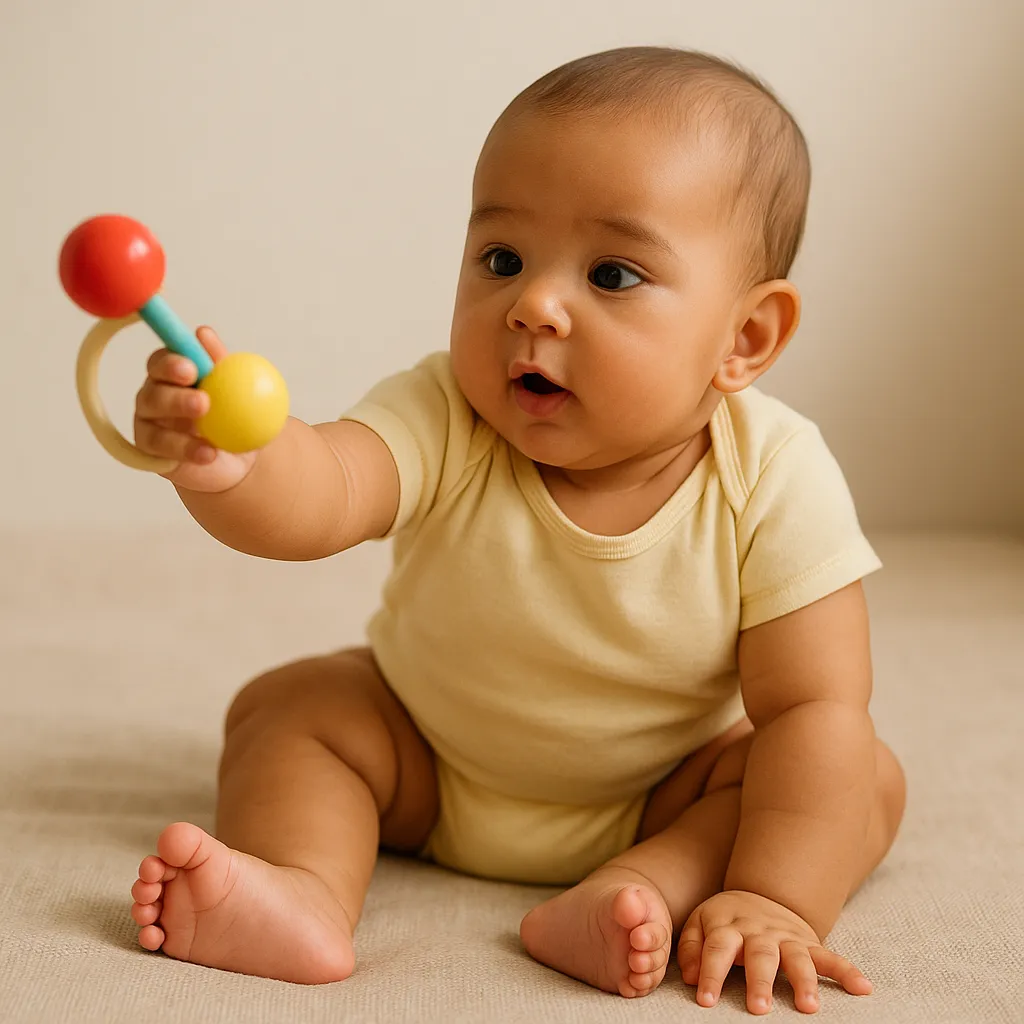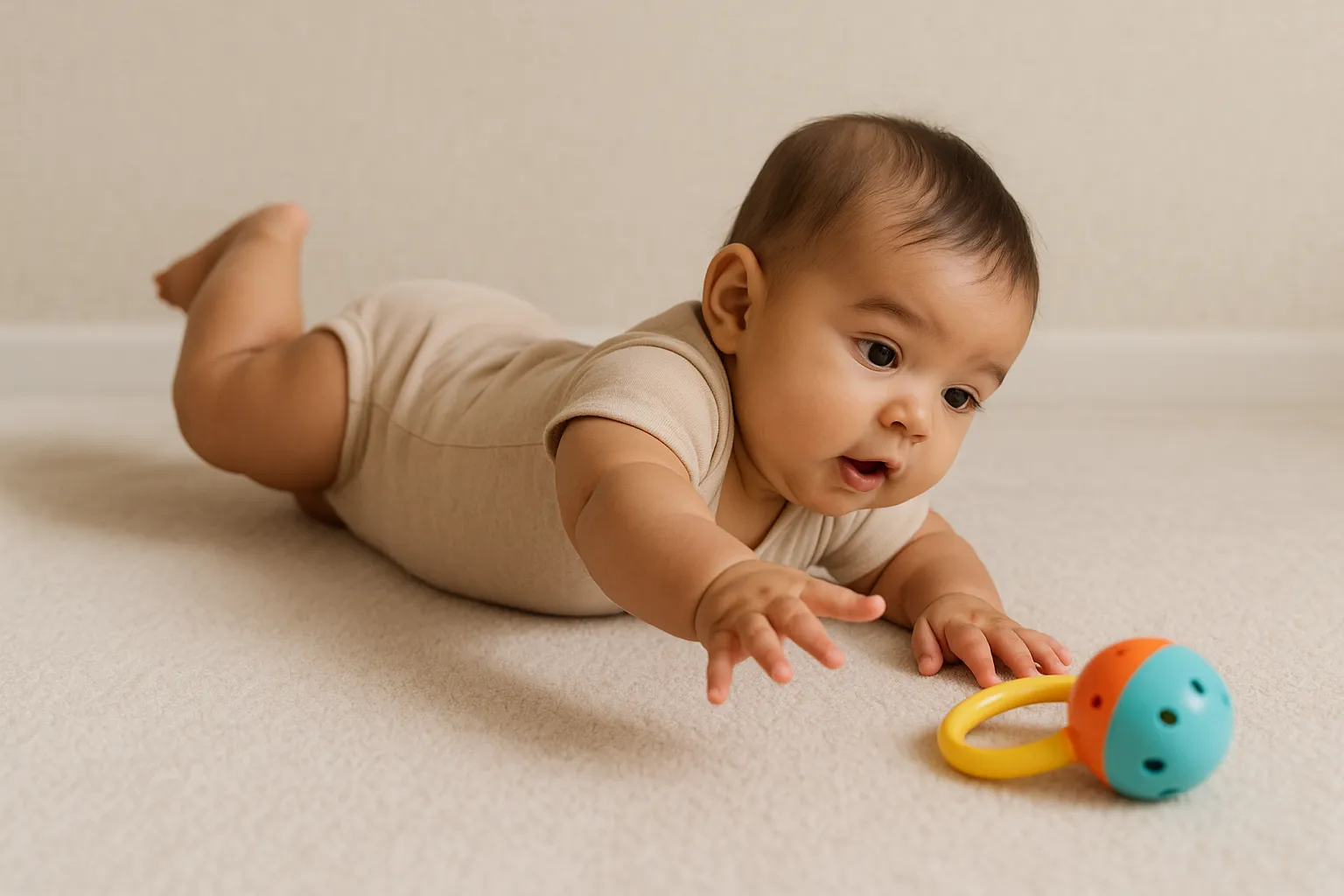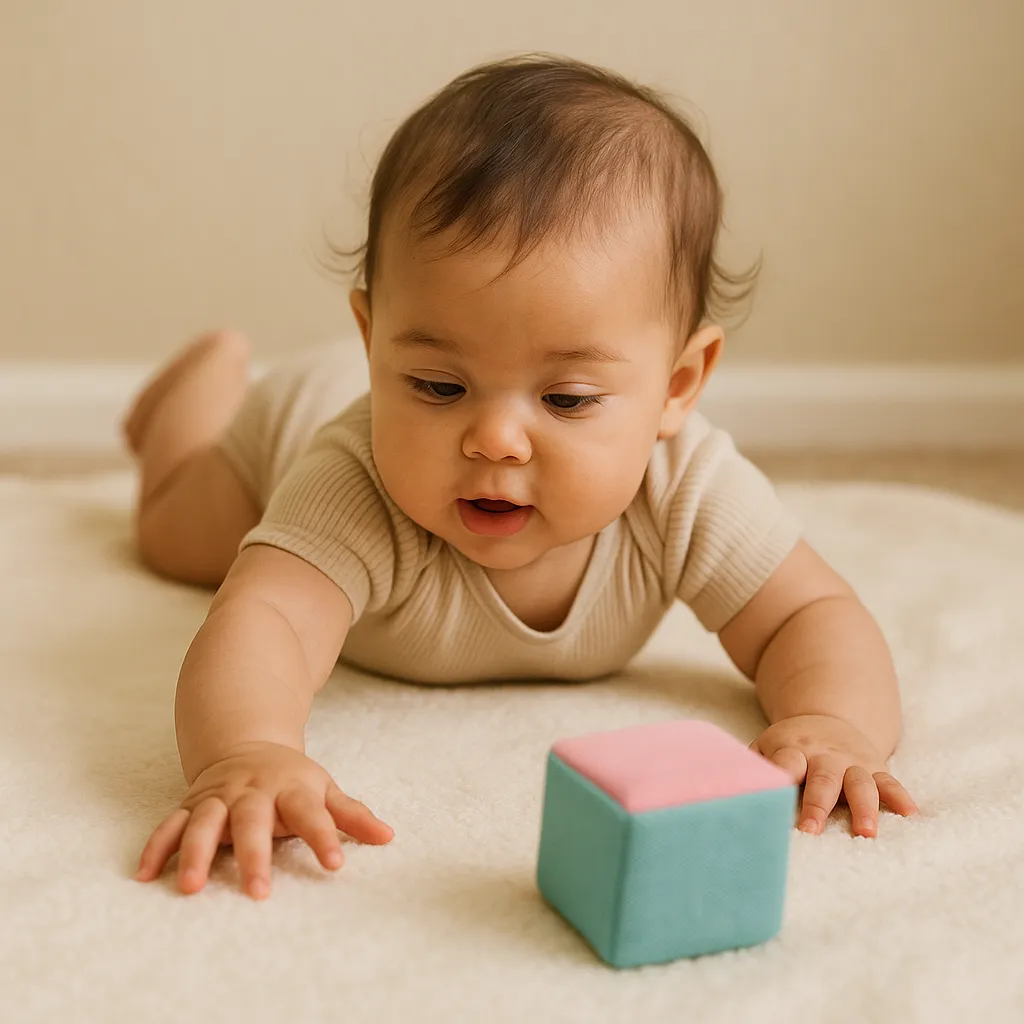6 Month Old Milestones – Practical Guide to Sitting Support, Rolling & First Foods
Wondering about 6 month old milestones? Here’s a calm, parent-friendly snapshot of what many babies do around 26 weeks — from stronger rolling and supported sitting to playful babble and starting solids when ready. Use these 6 month old milestones to guide play, not pressure.

What “6 Month Old Milestones” Really Mean
Milestones describe common skills within a range — not strict deadlines. Your baby may master some earlier and others later. Track the overall trend and keep play light, responsive, and joyful. That’s the heart of 6 month old milestones.
Quick note: Small daily repetitions add up. Watch your baby’s cues and follow their lead.
Physical Milestones (Month 6)
Rolling Both Ways
More consistent tummy↔back rolls; enjoys side-lying and reaching for toys placed to the side.
Supported Sitting
Sits with a caregiver’s hands, a firm pillow “U”, or a soft seat; brief independent sits may appear.
Raking Grasp
Fingers “rake” small objects toward the palm; explores textures and brings items to the mouth.
Stronger Push-Ups
Straight-arm tummy time shows shoulder stability and core strength — a bridge to sitting.

Cognitive Milestones (Month 6)
Cause & Effect Play
Repeats actions that make sounds or lights; bangs toys together; drops then looks for them.
Attention & Tracking
Follows toys smoothly through wider arcs; shifts gaze between you and an object with more control.
Routine Awareness
Predictable feed–play–nap rhythms support smoother days and easier sleep transitions.
How to Support 6 Month Old Milestones (Easy Wins)
Short, frequent sets; elevate chest on a small rolled towel; place toys at eye level.
Use a “U” of firm pillows; keep a hand nearby; offer two toys to practice transfers.
Offer safe, varied textures (soft blocks, crinkle cloths, rings). Let baby mouth and explore.
Echo babble (ba/da/ma), then pause. Simple books, songs with actions, and mirror time are perfect.

Sleep, Feeding & Play: What’s Typical at Month 6?
| Area | What’s typical at Month 6 |
|---|---|
| Awake Window | About 120–180 minutes before rest. Watch sleepy cues (rubs eyes, zoning out). |
| Night Sleep | Longer stretches are common; night feeds may still happen; often 2–3 daytime naps. |
| Feeding | Breast/formula remains primary. Many babies start solids around 6 months with readiness signs. |
| Play | Supported sitting, rolling practice, raking grasp, mirror games, songs, simple books. |
Helpful reads: When to Start Baby on Solid Foods · Feeding Schedule (0–12M) · Bedtime Routine for Babies
When to Talk to Your Pediatrician
Touch base if you’re noticing several of these together: very limited eye contact, rare smiling, little movement on one side, very stiff or very floppy tone, or no response to loud sounds. See milestone ranges at the CDC – Learn the Signs. Act Early..
FAQs
Should my 6-month-old sit without support?
Brief independent sits may appear now, but many still need support. Keep sessions short and supervised.
Is rolling both ways required now?
Many do, some are still practicing. Side-lying play and placing toys just off to the side help.
Are solids recommended at 6 months?
Most babies start around 6 months if they show readiness signs (good head control, interest in food, sits with support). Discuss timing and textures with your pediatrician and see this starting solids guide.
Observation Comparator (Month 6)
Helpful Next Steps
Enjoy your baby’s unique pace. Keep play short and frequent, repeat the wins, and adjust gently. Revisit these 6 month old milestones over the next few weeks to notice steady growth.
Social & Emotional Milestones (Month 6)
Richer Babble
Strings of sounds (ba, da, ma). Pauses and “answers” in a back-and-forth rhythm.
Big Smiles & Giggles
Peek-a-boo, songs, and mirror games light up connection. Your voice still soothes best.